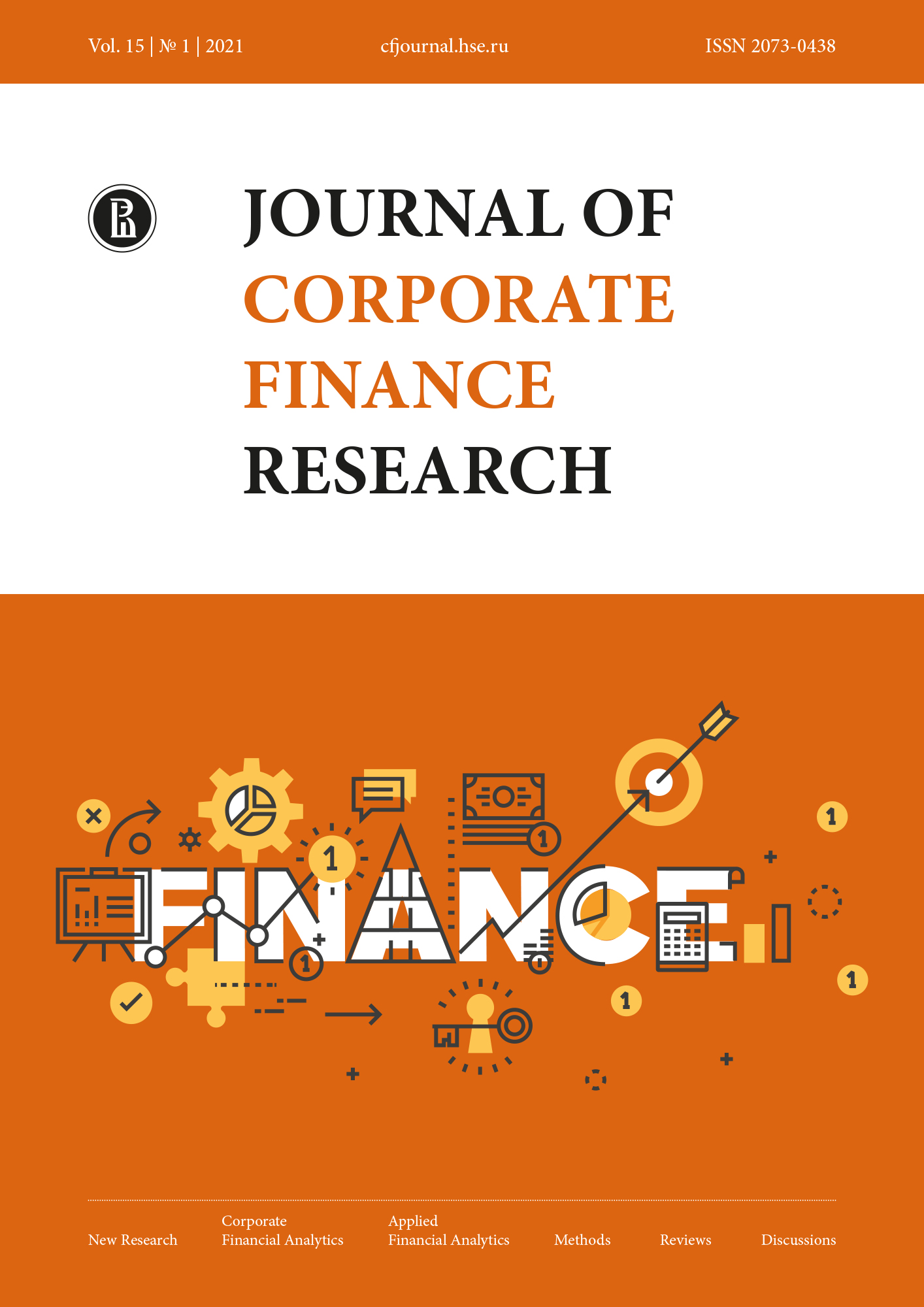Conceptual Framework for Financial Reporting: Problems and Prospects
Abstract
The objective of this paper is to define the theoretical basis and clarify the fundamental concept of the Conceptual Framework for Financial Reporting (CFFR). This is because the theoretical basis for CFFR has not been properly defined, and the articulation of the fundamental concept in the document does not correspond to its actual meaning. In clarifying, we will analyse these attributes from a critical perspective and propose an alternative articulation.
We apply a research method widely used in the USA based on semiotics, which construes accounting as a business language and requires analysis of the key accounting concepts from three viewpoints: syntactic, semantic an pragmatic. Two different theories form the theoretical basis for CFFR: the organisation theory and the residual equity theory. We further propose that the articulation of the fundamental concept of “objective of financial reporting” is self-contradictory, which is aggravated by the fact that the document deals with users of financial reporting and their objectives.
We identify major drawbacks in both theories. The organisation theory requires specific financial reporting which is incompatible with standardisation, and the residual equity theory is extremely difficult to understand and is not completely satisfactory for any of its user groups. These drawbacks and inaccuracies occlude understanding of CFFR and financial reporting.
As a result, we propose that it is advisable to do the following when developing the next version of CFFR:
• define the uniform theoretical basis in CFFR clearly;
• use the proprietary theory as the uniform theoretical basis;
• the definition of financial reporting oriented to informational needs of company owners should be the fundamental concept of CFFR.
This will enable CFFR and financial reporting to be simpler understand and the primary needs of all user groups will be satisfied.
Downloads
References
Conceptual framework for financial reporting. Ministry of Finance of Russia. 2018. URL: https://minfin.gov.ru/ru/document/?id_4=117374-kontseptualnye_osnovy_predstavleniya_finansovykh_otchetov_dokument_kontseptualnye_osnovy_predstavleniya_finansovykh_otchetov_prinyat_sovetom_po_msfo._nastoyashchaya_publikats (accessed on 20.07.2020). (In Russ.).
Framework for the preparation and presentation of financial statements. Мoscow: Askri-ASSA; 1999. 1135 с. (In Russ.).
Conceptual framework for financial reporting. 2010. URL: https://www.minfin.ru/common/upload/library/2014/06/main/kontseptualnye_osnovy_na_sayt_bez_predisloviya_-_kopiya.pdf (accessed on 20.07.2020).
Zeff S.A. The objectives of financial reporting: A historical survey and analysis, Accounting and Business Research. 2013;43(4):262-327. DOI: 10.1080/00014788.2013.782237 DOI: https://doi.org/10.1080/00014788.2013.782237
Malafeeva T.N. The emergence and development of the convergence process of the two types of standards: IFRS and US GAAP. Korporativnye finansy = Journal of Corporate Finance Research. 2016;10(3):70-83. DOI: 10.17323/j.jcfr.2073-0438.10.3.2016.70-83 DOI: https://doi.org/10.17323/j.jcfr.2073-0438.10.3.2016.70-83
Dennis I. What is a conceptual framework for financial reporting? Accounting in Europe. 2018;15(3):374-401. DOI: 10.1080/17449480.2018.1496269 DOI: https://doi.org/10.1080/17449480.2018.1496269
Whittington G. Harmonisation or discord? The critical role of the IASB conceptual framework review. Journal of Accounting and Public Policy, 2008;27(6):495-502. DOI: 10.1016/j.jaccpubpol.2008.09.006 DOI: https://doi.org/10.1016/j.jaccpubpol.2008.09.006
Mathews M., Perera M.H.B. Accounting theory and development. Melbourne: Nelson; 1996. 402 p. (Russ. ed.: Mathews M., Perera M.H.B. Teoriya bukhgalterskogo ucheta. Moscow: YuNITI; 1999. 663 p.).
Solomons D. Guidelines for financial reporting standards. London: The Institute of Chartered Accountants; New York: Garland Publishing; 1989. 77 p.
Whittred G.P., Zimmer I.R. Financial accounting: Incentive effects and economic consequences. Sydney: Holt, Rinehart and Winston; 1988. 341 p.
Hendriksen E.S., van Breda M.F. Accounting theory. Homewood, IL: Irwin, 1992. 905 p. (Russ. ed.: Hendriksen E.S., van Breda M.F. Teoriya bukhgalterskogo ucheta. Moscow: Finansy i statistika; 1997. 576 p.).
IASB/FASB Exposure draft: An improved conceptual framework for financial reporting. Chapter 1: The objective of financial reporting. Chapter 2: Qualitative characteristics and constraints on decision-useful financial reporting information. 2008. URL: https://library.croneri.co.uk/cch_uk/iast/iasedim0806-200806#toc-1-1
Kovalev V. Kovalev Vit.V. Conceptual framework of accounting: Logic of evolution. Vestnik Sankt-Peterburgskogo universiteta. Ekonomika = St Petersburg University Journal of Economic Studies (SUJES). 2015;(4):117-152. (In Russ.).
Dichev I.D. On the balance sheet-based model of financial reporting, Accounting Horizons. 2008;22(4):453-470. DOI: 10.2308/acch.2008.22.4.453 DOI: https://doi.org/10.2308/acch.2008.22.4.453
Benston G.J., Carmichael D.R., Demski J.S., Dharan B.G., Jamal K., Laux R., Rajgopal, S., Vrana G. The FASB's conceptual framework for financial reporting: A critical analysis. Accounting Horizons. 2007;21(2):229-238. DOI: 10.2308/acch.2007.21.2.229 DOI: https://doi.org/10.2308/acch.2007.21.2.229
Jones T. The principles and practice of book-keeping, embracing an entirely new and improved method of imparting the science: With exemplifications of the most concise and approved forms of arranging merchants’ accounts. New York: Wiley and Putnam; 1841. 160 p.
Foster B.F. A concise treatise on commercial book-keeping: Elucidating the principles and practice of double entry, and the modern methods of arranging merchants’ accounts. Boston: T.R. Marvin; 1846. 184 p.
Hügli F. Die buchhaltungs-systeme und buchhaltungsformen. Bern: K.J. Wyss; 1887. 678 p.
Schär J.F. Experience in scientific development of accounting. Transl. from German. Schetovodstvo. 1892;(1):2-4, (3):34-35, (5):60-61, (22):270-272. (In Russ.).
Hatfield H.R. Accounting: Its principles and problems. New York: D. Appleton and Company; 1927. 566 p.
Tsygankov K.Yu. Theory and methodology of capital accounting. Doct. econ. sci. diss. Novosibirsk: Novosibirsk State University of Economics and Management; 2009. 303 p. (In Russ.).
Van Mourik C. The equity theories and financial reporting: An analysis. Accounting in Europe. 2010;7(2):191-211. DOI: 10.1080/17449480.2010.511885 DOI: https://doi.org/10.1080/17449480.2010.511885
Mattessich R. Two hundred years of accounting research. An international survey of personalities, ideas and publications (from the beginning of the nineteenth century to the beginning of the twenty first century). Abingdon, New York, Routledge; 2008. 609 p. (Routledge New Works in Accounting History. Vol. 8).
Statement of principles for financial reporting. Statement. London: Accounting Standards Board; 1999. 151 p. URL: https://www.frc.org.uk/getattachment/31cb1973-82a6-439b-bf44-8fffad5b20da/Statement-of-Principles-for-Financial-Reporting-1999.pdf
Copyright (c) 2021 National Research University Higher School of Economics

This work is licensed under a Creative Commons Attribution-NonCommercial-NoDerivatives 4.0 International License.

